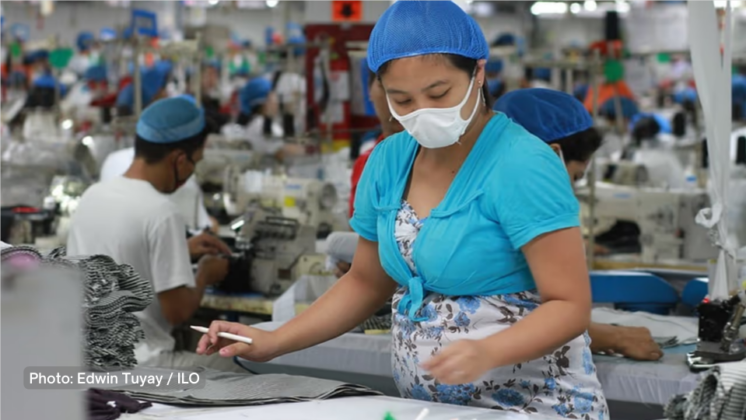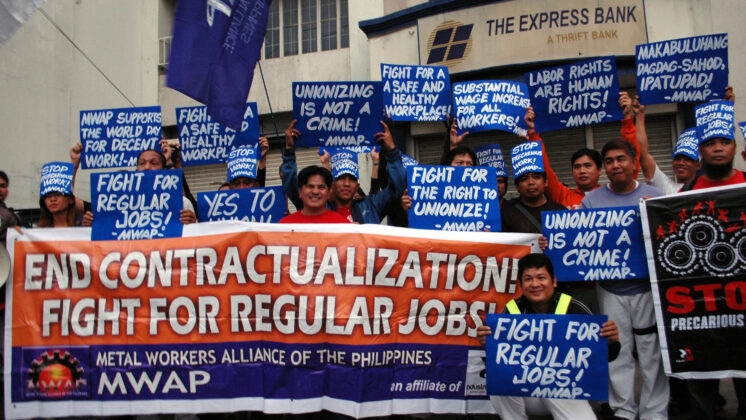Unions in South East Asia met last month to discuss how to use occupational health and safety (OHS) as a strategy to organise workers and build strong unions, protecting workers from a hazardous working environment.

Participants in the cross-sectoral online meeting on 26 October heard how Indonesia’s Chemical, Energy and Mines Workers had used OHS to organise workers, after more than 100 workers had died at mine sites.
CEMWU has developed educational material and training on health and safety for organisers in different provinces, including OHS principles in collective agreements, and holding related social dialogue with employers.
Julius Carandang, general secretary of Metal Workers’ Alliance of Philippines (MWP), underlined that OHS is an important strategy to organise, adding that when an electronics factory in Philippines forced pregnant women workers to work the night shift, workers were outraged and joined the union in response.
Participants discussed the ratification, implementation and monitoring of ILO OHS Conventions, like C176, C155 and C187, critical parts of the global victory of ILO declaring health and safety a fundamental principle at work.
“IndustriALL adopts a rights-based approach on OHS. Every worker has the right to know, participate and refuse, and that cannot be bargained with. When employers deny trade unions entry in the area of OHS, it is the duty of unions to regain control to save workers’ lives,”
said Glen Mpufane, IndustriALL mining and OHS director.
While unsafe and unhealthy workplace practice affects both men and women, women workers are exposed to greater risks due to their reproductive roles in society.
“We need a gender-responsive OHS policy. Companies and unions should conduct joint OHS risk assessments for women workers, and women should be given opportunities to join OHS committees,”
said Annie Adviento, general secretary of the Confederation of Labor and Allied Social Services of Philippines (CLASS).
IndustriALL’s manual for health and safety activists, Saving ourselves, is a resource for union health and safety activists, particularly those who are just starting out. The manual provides an overview of basic structures and programmes that workers need to understand when fighting for safer and healthier workplaces.
65 unionists from Cambodia, Indonesia, Japan, Malaysia, Mongolia, Myanmar, and Philippines attended the meeting and agreed to set up a regional cross sector OHS platform.
Photo: E. Tuyay / ILO
Reposted from IndustriALL.








